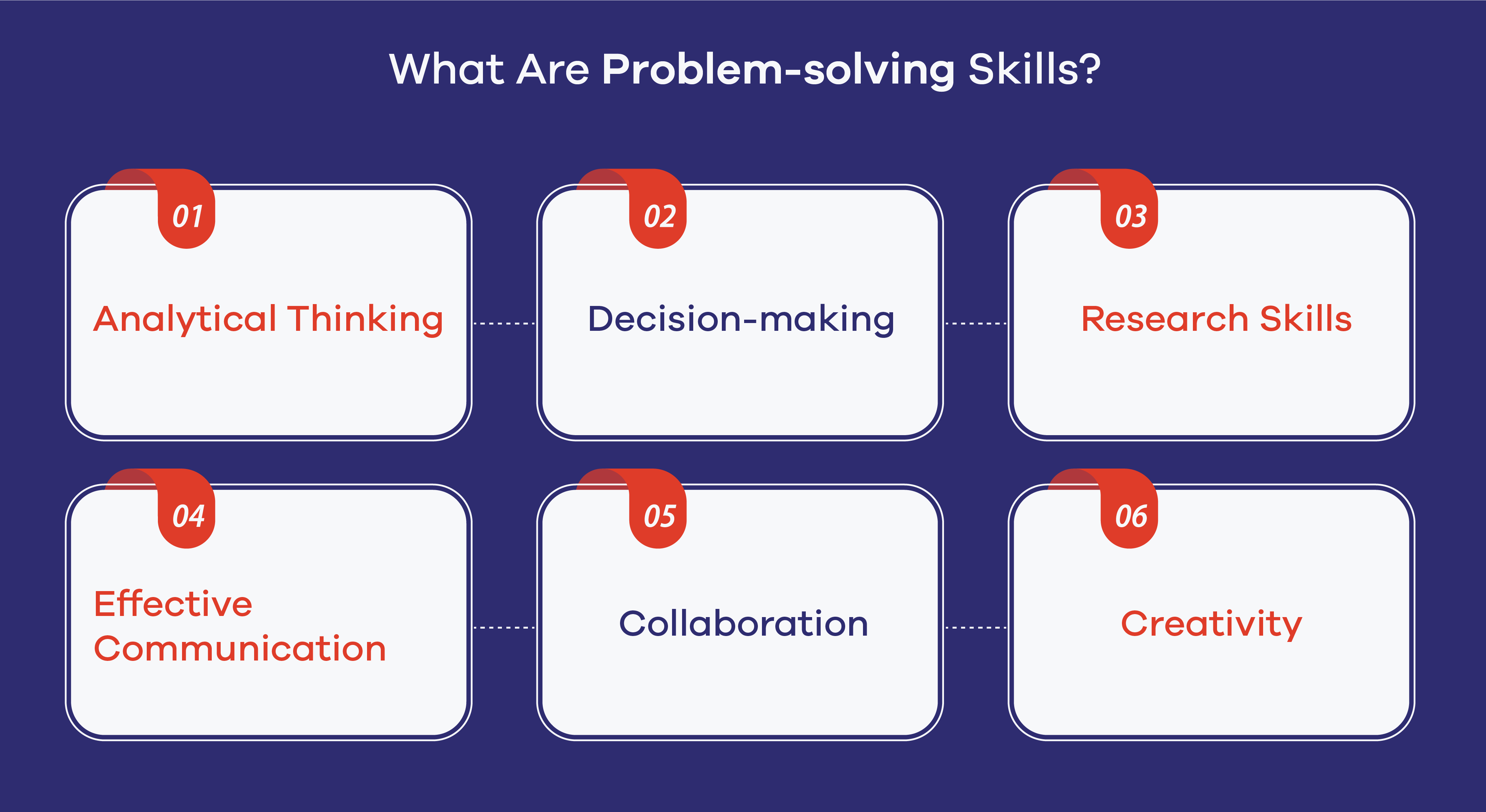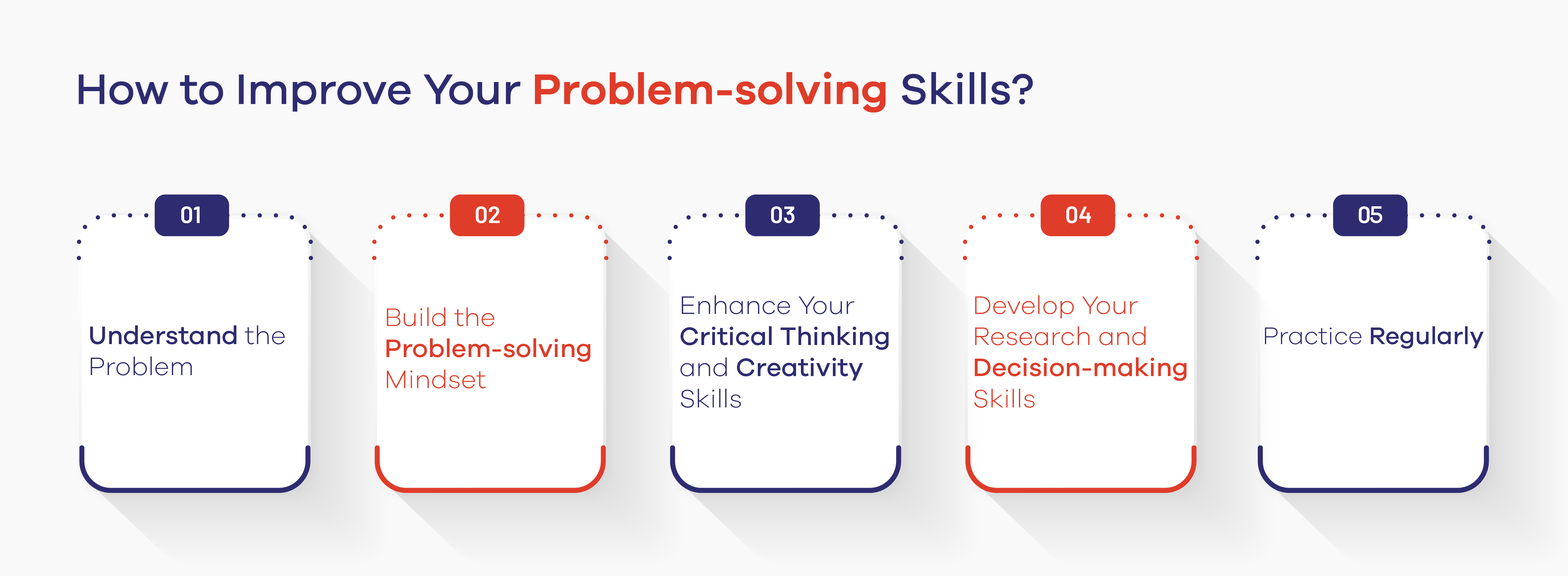5 Tips to Master Your Problem-solving Skills

University life comes with its challenges. As a student, at some point, you will encounter some hurdles, including resolving a conflict with classmates or making a big decision. This is why you need effective problem-solving skills. With these skills, you will find tricky situations easier to navigate. Ultimately, you are ready to welcome challenges as opportunities to learn, grow and thrive. So, how to master your problem-solving skills during your study? Read the five tips below!
What Are Problem-solving Skills?
Problem-solving skills are valuable when it comes to adapting to your university life. Whether you need them for managing a team in your classroom or juggling deadlines, these skills are valuable.
Here are the types of problem-solving skills you should have!
Analytical Thinking
In brief, analytical thinking is something that comes naturally. It involves being able to look at any problem from a logical perspective. Also, you need to break it down into manageable parts.
Decision-making
Making the right decisions is often the hardest part of problem solving. As a student, you might be wondering about which solution is the right one. In the decision-making process, you must evaluate information, consider potential outcomes, and choose the most suitable option.
Research Skills
Research skills are pivotal when it comes to problem solving during your study. With these skills, you can search for relevant data, critically evaluate information sources, and draw meaningful conclusions.

Effective Communication
Effective communication skills will support you in all areas of your life. Speaking of problem-solving skills, communication plays a key role. By having excellent communication skills, you can easily collaborate and share insights. To sharpen this skill, it will be a great idea if you learn to communicate in English.
Collaboration
With diverse backgrounds, it is not always easy to work with other classmates. This is why collaboration is a key element in problem solving. With this skill, you can make use of different perspectives and areas of expertise to find the best solutions.
Creativity
They said that a little creative flair goes a long way. Yes, when you think outside of the box, you can approach problems from different angles. To practice creative thinking, you must combine existing knowledge and experiences. Also, you must consider some perspectives in new and innovative ways to produce inventive solutions.
How to Improve Your Problem-solving Skills?
Now that you know the types of problem-solving skills, you surely want to improve each skill, right? Here are the five tips below you can follow!
1. Understand the Problem
The first thing you must do to solve a problem is to understand the problem itself. Well, there is no point trying to solve a problem you do not understand. Moreover, to analyse a problem effectively, you must define it. This way, you can break it down into smaller parts. Hence, making it easier to find causes and potential solutions.
You can start with a well-defined and specific problem statement. This will help you focus and not have to waste time and resources on the wrong concerns.
2. Build the Problem-solving Mindset
Building a problem-solving mindset will help you tackle every single challenge effectively. Consider problems as opportunities for growth and learning, rather than as obstacles. This mindset will allow you to approach every challenge with a can-do attitude.
Furthermore, patience is also essential to help you work through the problem and its various solutions mindfully. In addition, you should have persistence is also important in adapting your approach until you find the right solution.
Finally, you should not forget to ask questions to yourself, such as:
- What are essential things you must know about the problem?
- What assumptions are you making?
- What can you learn from previous attempts?
Simply put, you must stay curious in seeking out solutions. More than that, you should explore new possibilities and remain open to different problem-solving approaches.

3. Enhance Your Critical Thinking and Creativity Skills
Critical thinking and creativity are both important to help you view the problem objectively. Critical thinking will encourage you to question assumptions, recognise biases, and seek evidence to support your conclusions. Meanwhile, creative thinking allows you to look at the problem from different angles. As a result, you will reveal new insights and opportunities.
4. Develop Your Research and Decision-making Skills
Research provides the information and data you need. From the research, you can have a comprehensive understanding of the problem and its context. On the other hand, effective decision-making is about selecting the solution that best addresses the problem.
Here’s how you can develop these skills:
- Decide what you want to achieve through research
- Use a variety of sources, including reading books, articles, research papers, and online databases
- Integrate risk assessment into your decision-making process
- Look for input from experts, colleagues, and mentors
- Evaluate the outcomes and lessons learned from your decision
- Strengthen your collaboration skills
Being able to work with your classmates is one of the most important problem-solving skills. In fact, collaboration skills will help you in your future career. Having excellent collaboration skills enables you to work effectively as a team, share your perspectives, and collectively find solutions.
5. Practice Regularly
We know that practice makes perfect. Using your problem-solving skills in real life allows you to adapt to new challenges.
Here’s what you can do:
- Do practical problem-solving exercises
- Work on puzzles, riddles, and brainteasers regularly
- Identify real-life challenges you encounter
- Analyse case studies relevant to your field of study
- Regularly review past problem-solving experiences and consider what you have learned from them
Summing Up
Indeed, you need effective problem-solving skills to help you do best in your university life. When you study at MAJU (Muhammad Ali Jinnah University), you will get the chance to improve these skills. Moreover, with our world-class faculty, academic excellence, advanced education technology, and high-impact research, you will be prepared to make a mark on the world.



